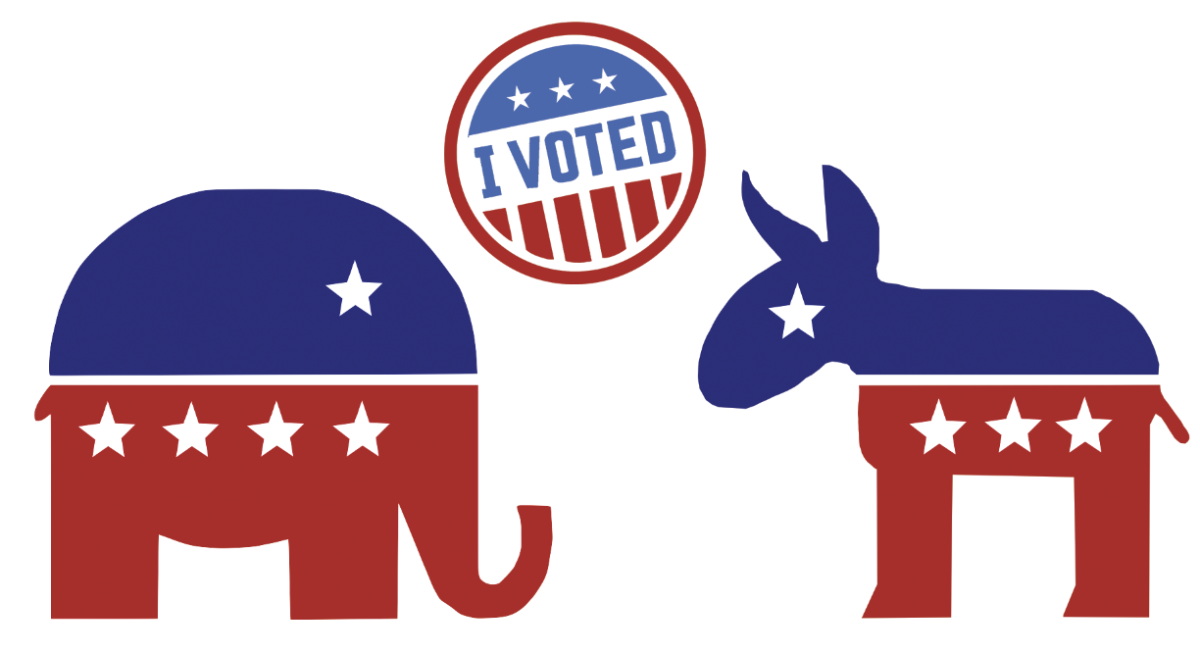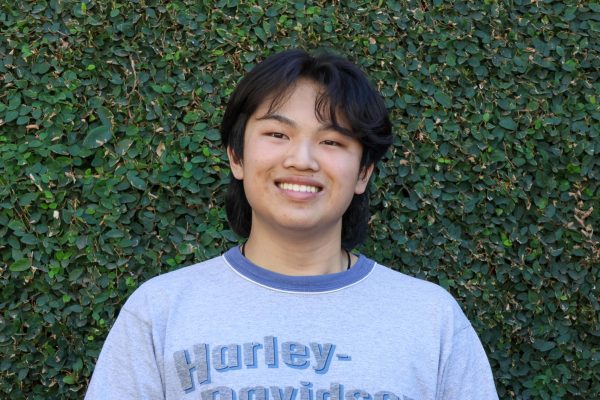In less than three months, Avery Kim ’25 will look down to see his 2024 presidential ballot. After completing the registration process and reading the news daily for campaign updates, the moment will come where he must make a choice and cast his first vote. The many hours he has spent researching each candidate’s campaign and policies will finally pay off as he marks the bubble next to his preferred candidate. Along with other members of the school community, Kim will stay up and watch as states like California and Indiana turn their familiar blue and red. He will watch as the last results from swing states like Pennsylvania and Arizona come in.
Kim said he is politically knowledgeable because of his frequent consumption of The Wall Street Journal and other digital news sites.
“I’ve always been a pretty avid reader of The Wall Street Journal and occasionally online news articles, so I have a solid, though pretty general understanding of many of the main issues surrounding the election,” Kim said. “I do think I should do more research on specific policies in the lead-up to the election.”
Kim said he is especially concerned about foreign policy, which plays a large role in his support for Vice President Kamala Harris and Minnesota Gov. Tim Walz.
“Since I’ve always been interested in global events and super big-picture issues, I do believe each candidate’s foreign policy approach will play a huge role in my decision,” Kim said. “I would like the new president to maintain and strengthen the security commitments the US maintains throughout the world, especially in Europe and Asia. Specifically, I think that they should be steadfast in their political and military support for Ukraine, especially at a time when isolationism is rearing itself back into the American consciousness. As of right now, I’m pretty squarely in support of Harris and Walz.”
Laura Brill (Ben Brill ’21) is the CEO and founder of The Civics Center, a nonprofit organization focused on increasing voter registration for high school students. She said there are other important ballot races besides the presidential election.
“This November, Adam Schiff’s former congressional seat is open in Burbank,” Brill said. “Protection for marriage equality and other important measures will be on the ballot statewide.”
Seth O’Brien ’25 said he is mostly concerned with local politics such as the District Attorney election because he feels his presidential vote will not make a difference.
“The most important issue for me in this election is the LA County district attorney race,” O’Brien said. “I am not satisfied with the way our current district attorney has approached crime throughout his term, and his opponent Nathan Hochman promises a more harsh stance on crime. I obviously care about the presidential race, but with the electoral college and being from California, my vote in that is less important.”
The campaigns of both Harris and former President Donald Trump are trying to appeal broadly to young voters through social media. This year, both major candidates have been advertising heavily on platforms like TikTok in an effort to reach young people, according to MPR News. Notably, the Harris campaign’s “Kamala HQ” TikTok account has accumulated around 3.8 million followers. The account posts trendy videos describing Harris as a “femininomenon,” referencing a popular song by artist Chappell Roan. At her rallies, Harris hosted Megan Thee Stallion and Quavo, celebrities who are especially popular with young people, according to The Print Newspaper. Trump’s campaign also created a TikTok account which amassed around 10.5 million followers. The account posted a video of Trump dancing with social media star Adin Ross and other clips with popular influencer and boxer Logan Paul.
Alexa Liu ’25, who plans to vote this year, said social media posts about politics can make voting more appealing to young people, but they can also weaken a politician’s image.
“Media plays a huge role in shaping young and older voters,” Liu said. “A lot of the memes and jokes make [voting] more palatable to younger audiences who may have less experience with politics, but they can sometimes breed an image that ultimately undermines candidates’ authority, something that is important for a president to have on the domestic and international stage.”
Kim said he has not been swayed by social media advertising from Harris or Trump, though he said he finds their campaigns interesting.
“Neither Harris’ or Trump’s campaign advertising strategies alone have particularly attracted me,” Kim said. “I do really find the increasing prominence of social media and ‘trendy’-type advertising such as Harris’ campaign and Trump meeting with Adin Ross to be a particularly interesting and important development for future elections.”
Young voters are getting more election information from social media than ever before. 48% of US adults under 30 say they get most of their political information from social media, according to Pew Research Center. However, just a quarter of people in this age group intentionally seek out information about the election; the remaining three-quarters only receive election information when they happen to come across it. Recent polls indicate that Harris leads Trump 57% to 29% among voters under 30, according to the Pew Research Center.
Liu said she uses both traditional news outlets as well as news-focused social media to obtain election information.
“I have been reading up on the different candidates’ policies and have been somewhat keeping up with the national news,” Liu said. “I get my news and political information from mainly news channels such as KTLA, NBC, AP News and also TikTok.”
History teacher Peter Sheehy said it is important to get news from reliable sources and think critically about potentially biased outlets.
“I’m a pretty careful consumer of news,” Sheehy said. “I look at a variety of sources, and I don’t look at news through social media. I go directly to sources like The New York Times, The Washington Post [and] the The Wall Street Journal, but even those are is being framed in a particular way that one has to be mindful of.”
Sheehy said young people should cast their votes in the fall.
“I would love to see everyone vote” Sheehy said. “Our voting turnout rates are extremely low in the United States, particularly among youth. I think that’s unfortunate, and I understand why a lot of youth feel unexcited or disenchanted by the system, but I don’t think sitting on the sidelines is the best solution to that.”
Brill said it is important for young people to use their voices and participate in the upcoming election.
“Democracy works best when everyone participates,” Brill said. “Young people have a stake in the future on issues from climate change to mental health and more. We can’t make effective policies when young people aren’t part of the story.”





























